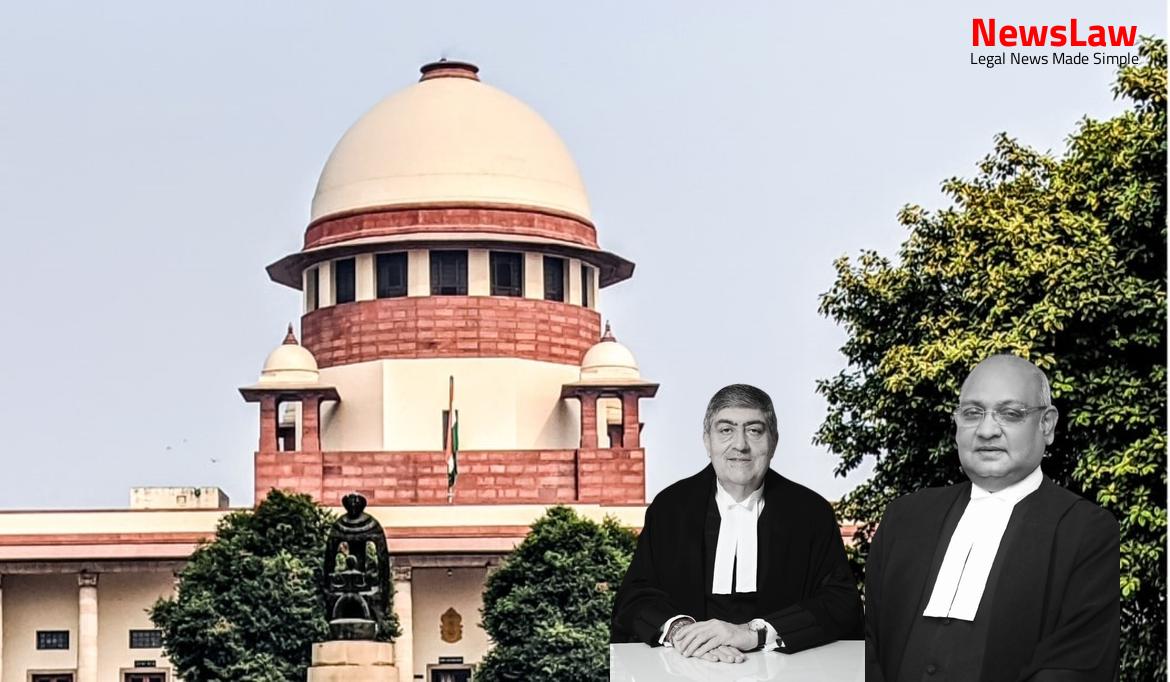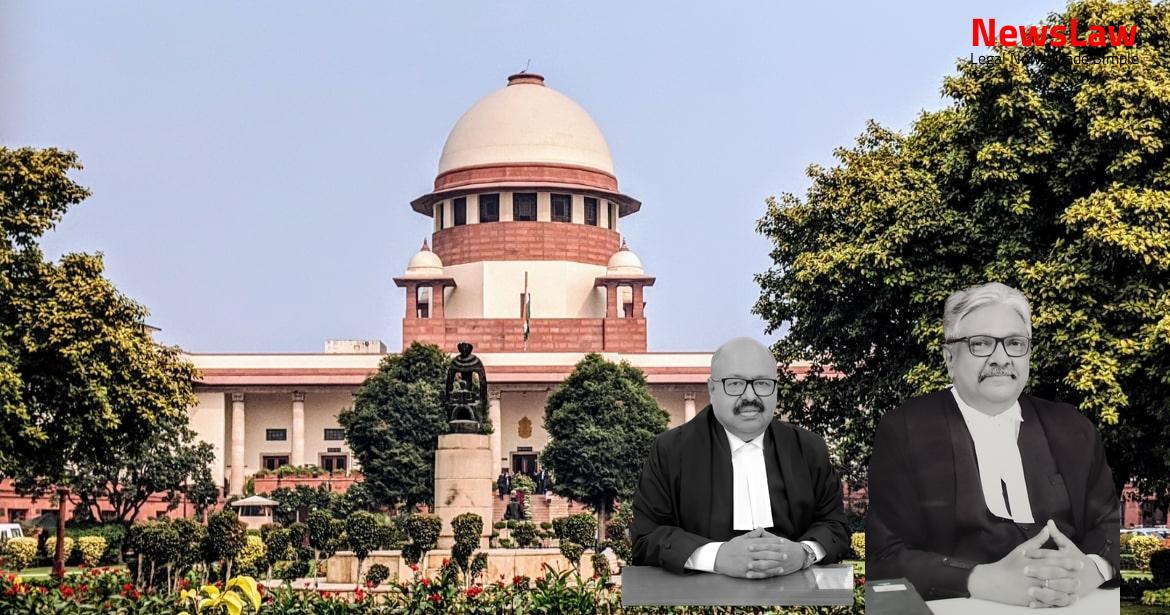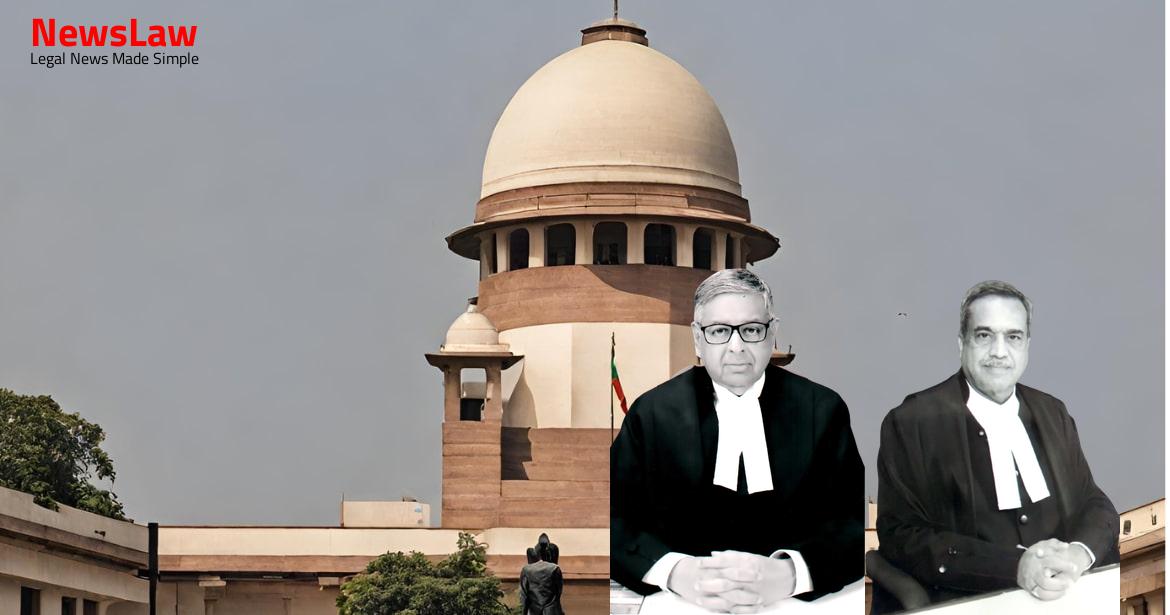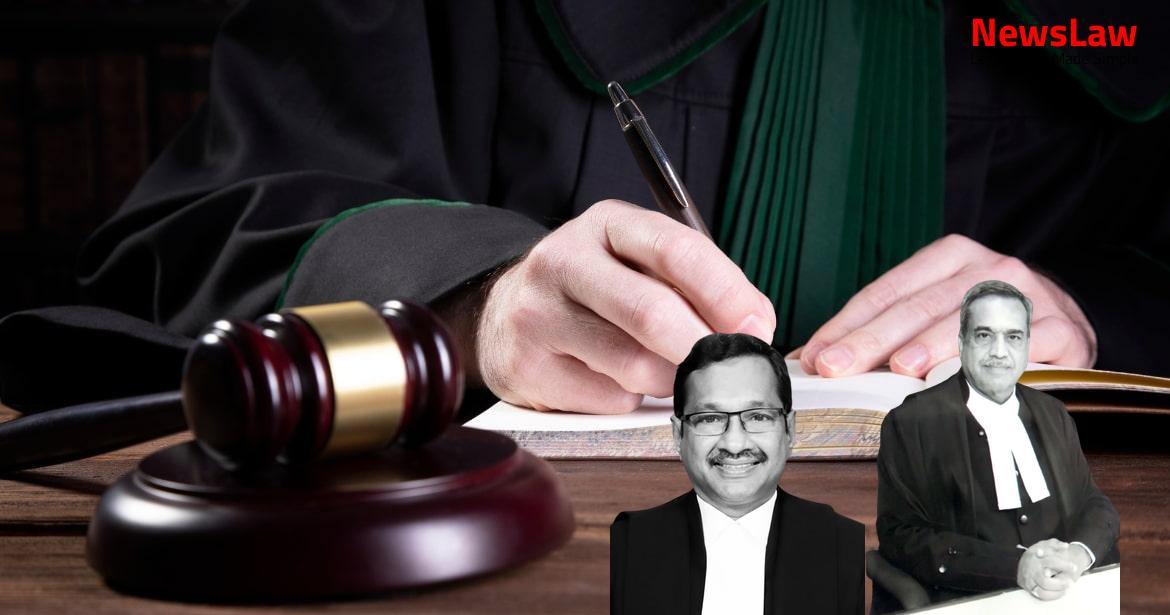In a recent legal case, the High Court carefully analyzed the equivalence of post-graduate degrees in the field of education. The case revolves around the eligibility criteria for academic positions, specifically for the role of Assistant Professor in Education. The Court’s thorough legal analysis shed light on the complexities surrounding the recognition of M.A. (Education) and M.Ed. degrees, emphasizing the importance of expert opinions and regulatory guidelines in determining qualification equivalence. Let’s explore the nuanced legal discussions in this case.
Facts
- The appellant approached the High Court by filing Writ-A No 61 of 2015.
- This action was taken in response to the issue faced by the appellant.
- The Division Bench of the Allahabad High Court, in the impugned order dated 14.5.2018, found that the issue regarding the eligibility of M.Ed. qualified individuals for the post of Assistant Professor in Education was no longer undecided.
- It was established that while M.A. (Education) is considered a master’s degree in the subject, M.Ed. is regarded as a training qualification and does not hold the same status.
- As a result, the conclusion was drawn that individuals with an M.Ed. qualification could not be appointed to the position of Assistant Professor in Education.
- The corrigendum dated 11.7.2016, which allowed for M.Ed. qualified candidates to be considered for the role, was subsequently overturned.
- In compliance with this decision, Respondent No. 2 decided in their meeting on 5.9.2018 to modify the qualifications required for the Assistant Professor in Education position to only include candidates with M.A. (Education) as eligible.
Also Read: Supreme Court Judgment on Single Till Mechanism for HRAB Calculation: A Comprehensive Analysis
Arguments
- The varying academic backgrounds and qualifications of post-graduates with M.A. (Education) and M.Ed. degrees have led to a number of legal conflicts.
- The current case is a result of this ongoing dispute between individuals holding different post-graduate degrees in education.
- The petitioner’s challenge in the writ petition was based on various grounds including previous court opinions and expert committee findings.
- Respondent No 2 contested the petition, emphasizing that M.Ed. is a recognized master’s degree by UGC and NCTE for the post of Assistant Professor in Education.
- The controversy arose when candidates with M.Ed. degrees applied for lecturer-ship, leading to the issuance of a corrigendum to clarify eligibility.
- Judicial pronouncements have highlighted the distinction between M.A. (Education) and M.Ed. degrees.
- Appellants argued that M.A. (Education) and M.Ed. are different programs, and equivalence of degrees is not within the competence of certain authorities.
- The Ministry of Education contended that the question of eligibility for Assistant Professor on the basis of M.Ed. degree was not properly addressed in the case.
- Appellants sought participation in the 2016 selection process for Assistant Professor, highlighting the timing of the corrigendum and the importance of impleading relevant parties in the case.
Analysis
- The UGC specified M.Ed. as a master’s degree in Education under Section 22 of the UGC Act.
- An expert committee concluded that M.Ed. qualifies as a master’s program in education recognized by UGC and NCTE.
- M.A. (Education) and M.Ed. are different degrees, with M.A. being an academic degree and M.Ed. being a professional one.
- NCTE recognized M.Ed. as a master’s degree and declared M.Ed. holders eligible for Assistant Professor positions in Education.
- The High Court’s judgment relied heavily on the distinction between M.Ed. and M.A. (Education) despite subsequent clarifications.
- The equivalence of degrees is a matter for the employing organization to decide.
- Education matters should be left to educationists, guided by relevant statutes and regulations.
- Judicial review needs to tread carefully when questioning expert opinions on educational qualifications.
- The applicable UGC Regulations required specific qualifications for Assistant Professors, including a Master’s degree with a certain academic record.
- The controversy arose from discrepancies in the interpretation of M.Ed. and M.A. (Education) degrees.
- In the case of Dr. Prit Singh, the dual qualification was not required for candidates with either an M.Ed. or an M.A. (Education) qualification taking a common test for obtaining the NET certificate.
- The decision in Dr. Ram Sevak Singh v. Dr. U.P. Singh & Ors. highlighted the lack of distinction based on the degree of successful candidates with M.Ed. or M.A. (Education) qualifications for the NET certificate.
- The determining of qualification equivalence is the responsibility of the recruiting authority, in this case, the State.
- Judicial review does not have a role in determining qualification equivalence; experts and the employing authority are responsible for such judgments.
- The decision in Jyoti K.K. (supra) was context-specific to a statutory rule where holding a higher qualification could presuppose acquiring a lower qualification.
- Passing NET or equivalent examination is mandatory for eligibility, ensuring all NET qualified candidates are eligible for appointment.
- The prescribing of qualifications for a post is at the discretion of the State as the employer, considering job nature, required aptitudes, functionality of qualifications, and course content.
- Policy matters, social perspectives, and public service needs are within the State’s purview when setting qualifications for recruitment.
- Teaching staff under the Faculty of Arts in ‘Education’ cannot teach B.Ed. and M.Ed. students, set their papers, or moderate courses.
- Judicial review does not expand on the prescribed qualifications as it is the employer’s prerogative to set eligibility conditions.
- The decision in Jyoti K.K. (supra) was influenced by Rule 10(a)(ii), indicating that a higher qualification might not necessitate the acquisition of a lower qualification without such a rule.
- A reference to a case in the Allahabad High Court emphasized that qualification prescription is part of recruitment policy, as per Section 27 of the Uttar Pradesh State Universities Act, 1973.
- Equivalence issue arises when there are two different degrees to be considered.
- Employer (respondent No.2) accepted the recommendation of the expert committee.
- The UGC and equivalence authority (respondent No.5) have opined that both degrees are post graduate and can be treated as equivalent for the post of Assistant Professor in Education.
- No need for the court to review the decision of the experts.
- Respondent No.3 was selected in the 2014 selection process.
Also Read: Selection and Appointment of Judicial Officers in Himachal Pradesh
Decision
- The result having already been computed and awaiting declaration should now be declared forthwith.
- Employment opportunities should be provided to individuals meeting the eligibility criteria.
- Students should benefit from education provided by the employed persons.
- The appeal is allowed, with parties bearing their own costs.
- The challenge to the corrigendum dated 11.7.2016 is repelled.
- The appeal is dismissed, with the judgment being confined to the 2016 selection process.
- The 2014 selection process, which had a different advertisement and stands completed, will not be reopened.
Case Title: ANAND YADAV Vs. THE STATE OF UTTAR PRADESH (2020 INSC 588)
Case Number: C.A. No.-002850-002850 / 2020



